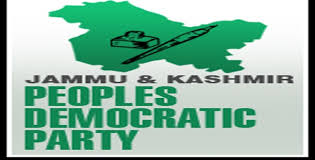News Kashmir Exclusive
Drinking Water problems are aggravating in Kashmir with every passing day. Bearing the fact in mind that only ~1% of the world’s fresh water is accessible for direct human uses in entire world the sane voices thus calls for judicious use of water in Kashmir and throughout world .This is the water found in lakes, rivers, reservoirs and those underground sources that are shallow enough to be tapped at an affordable cost.
Once rich in drinking and fresh water sources Kashmir is now facing multiple problems on this front. Rural areas, areas of Srinagar City and far-flung areas in Kashmir since past few months especially after floods last year are facing acute shortage of drinking water. According to officials there are 1800 Water Supply Schemes WSSs in the Kashmir valley for providing drinking water to consumers. However, during the September last year devastating flood, 1,300 schemes were affected, majority of them badly and after few months due to rain 250 schemes were affected due to mud and landslides.
Pertinently, areas like Batmaloo,Iddgah, Rawalpora have been facing worse problems with reference to drinking water. In central Kashmir, even as construction of number of water supply schemes were inaugurated in the Chadoora division years ago, the delay in their completion and subsequent commissioning has worsened the scarcity of drinking water in the area compelling people to head to filthy streams and water bodies.
Failure of water supply schemes, devastation of fresh water sources like lakes, rivers , streams are said to be some off the main reason behind water woes of Kashmir. Summers are here and the urban centres in Kashmir are already complaining about water shortage not to mention many villages which lack safe drinking water.
To mitigate the drinking water problems faced by people experts call on tapping Groundwater as it is a very imperative source of water for the people worldwide.Hence the expert voices urge upon the concerned stakeholders to tap groundwater resources to save kashmir from water crisis. According to the statistics, listed on the website of the Central ground water board, J&K has 2.70 BCM(Billion Cubic Meters). And the net Annual Ground Water Availability is 2.43 BCM. So many state that need of the hour is Government and other stake holders to tap this vital groundwater potential. The largest use for groundwater is to irrigate crops . It is important for all of us to learn to protect our groundwater because of its importance as a source of water for drinking and irrigation.
Manzoor Ahmad , a student said, “ Recently we earned via Public Health Engineering (PHE) officials that two we known Water Supply Schemes (WSS)—Rangil and Alisteang—in the central Kashmir’s Ganderbal got affected due to breach and mudslides triggered by heavy downpour and this badly affected the drinking water supply. We need to have effective mechanism to safeguard our drinking water schemes and solve drinking water problems .Water is life. At a time when the whole world is witnessing water crisis its adverse impacts are now visible in this part of the world as well .We thus need to tap Groundwater as it is used for drinking by more than 50 percent of the people in the globe, including almost everyone who lives in rural areas. Only this amount is regularly renewed by rain and snowfall, and is therefore available on a sustainable basis. We need to save our fresh water sources like lakes, streams, ponds from destruction.”
General consensus on ground is that a swift, visionary road map can only minimize the water woes of Kashmir and save the scenario from getting worse .




